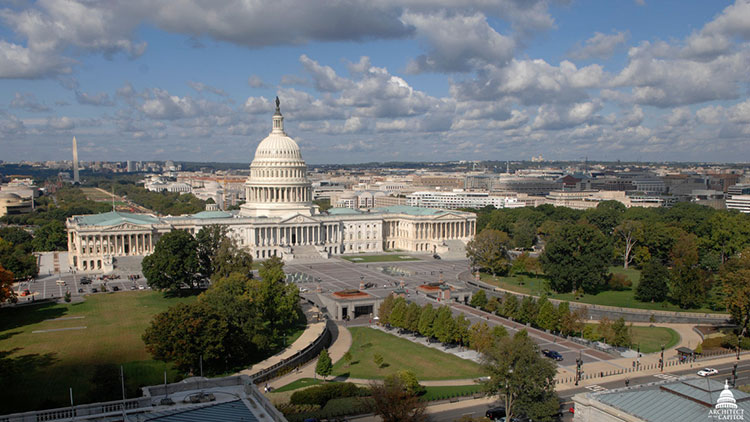Gorsuch Says He Will Look at Chevron With Open Mind

The smarter way to stay on top of broadcasting and cable industry. Sign up below
You are now subscribed
Your newsletter sign-up was successful
Judge Neil Gorsuch, no fan of the Chevron doctrine, said Tuesday he would bring an open mind if the issue comes up.
In the Senate Judiciary Committee confirmation hearing for Gorsuch's nomination to the Supreme Court March 21, Sen. Amy Klobuchar (D-Minn.) pointed out that Gorsuch had written a concurring opinion in his own opinion where he raised the issue of whether the Chevron doctrine granting federal agencies deference in interpreting laws was giving them power that more properly resided with the courts.
"I was concerned about the due process implications that arise in cases… where an individual is not aided by an army of lawyers and lobbyists, can they anticipate changes in law by agencies back and forth willy nilly, even to the point of overruling judicial precedent," he said. He said he had equal protection issues—"an individual singled out by a political branch in a way that judges are supposed to protect"—as well as separation of powers issues about whether "a judge is supposed to say what the law is."
Gorsuch said that his job as a circuit judge was to let his bosses know when he thinks there is a problem.
Klobuchar pointed out that he would be the boss if he were confirmed.
He said that if the issue of overturning the Chevron deference doctrine came up in his role as a justice, he would "try to come at it with as open a mind as a man could muster."
Nobody is suggesting scientists and chemists and biologists should not get deference, Gorsuch told Sen. Al Franken (D-(Minn.), who also asked about Chevron.
As a judge on the 10th U.S. Circuit Court of Appeals, Gorsuch challenged the Chevron doctrine, the result of a 1984 Supreme Court ruling under which courts have historically deferred to the subject matter expertise of federal agencies, like the Federal Communications Commission, when it comes to interpreting ambiguous statutes.
The smarter way to stay on top of broadcasting and cable industry. Sign up below
Gorsuch wrote in that August 2016 opinion that the “elephant in the room” in that case was that “Chevron and Brand X permit executive bureaucracies to swallow huge amounts of core judicial and legislative power and concentrate federal power in a way that seems more than a little difficult to square with the Constitution of the framers design.” Gorsuch is a judicial conservative who looks to the original intent of those framers to interpret the Constitution.”
In the 2005 Brand X decision, which was about the classification of internet access service, the Supreme Court ruled that Chevron deference trumped an appeals court decision because that court had found the statute vague and, in such cases, the agency is due deference. The FCC had concluded that internet access was an information service, not a telecom service subject to mandatory access.
Gorsuch wrote of Chevron: “Courts are required to overrule their own declarations about the meaning of existing law in favor of interpretations dictated by executive agencies.” Justice Antonin Scalia, whose seat would be filled by Gorsuch if he is confirmed, famously dissented in the Brand X case, a 6-3 ruling. A supporter of Chevron deference in general, Scalia said that in Brand X, the court had invented a novel approach whereby “judicial decisions [would be] subject to reversal by Executive officers,” such as the FCC.
Gorsuch’s view could be important, depending on how the challenges to the FCC’s Open Internet order play out or in other cases involving FCC interpretation of statute. The FCC argued in defending its original Open Internet order that its authority to regulate ISPs as it did in the net neutrality rules stemmed from Chevron deference. ISPs disagreed.
Contributing editor John Eggerton has been an editor and/or writer on media regulation, legislation and policy for over four decades, including covering the FCC, FTC, Congress, the major media trade associations, and the federal courts. In addition to Multichannel News and Broadcasting + Cable, his work has appeared in Radio World, TV Technology, TV Fax, This Week in Consumer Electronics, Variety and the Encyclopedia Britannica.

